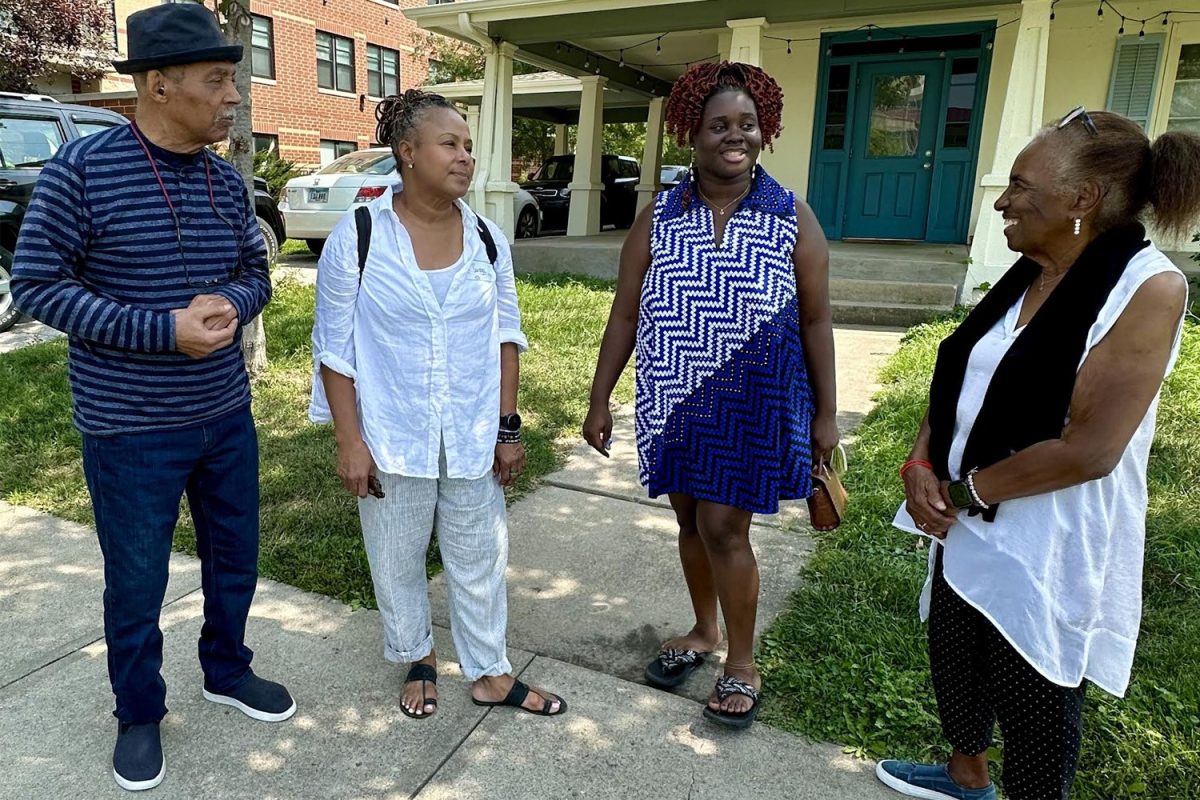A historic exhibit to honor Johnson County eponym Lulu Merle Johnson is entering into planning stages.
Consulting historian Rebecca Conard and Johnson’s great-niece Sonya Jackson presented a project proposal on Oct. 25 to the board of supervisors.
Johnson, a University of Iowa alum, made history when she became the first Black woman to earn a Ph.D. from the UI in 1941, and the 10th Black woman to receive a doctorate in the U.S.
The exhibit will honor Johnson’s successful teaching career as well as her local and national influence. Split into two parts, the exhibit will be both inspirational and educational.
The exhibits are budgeted at almost $50,000, an increase from the $26,79 set aside by the county in 2022.
To be located in a southeast plot on the Johnson County Administration building grounds, the outdoor exhibit will include a landscaped walking path featuring a bronze sculpture of Johnson as the centerpiece.
Informative plaques will walk visitors through the timeline of Johnson’s life and include essential biographical information.
The indoor aspect of the project is projected to remain for 10 to 15 years. This portion will be educational and interpretive, including features that complement Johnson’s timeline.
The indoor exhibit is planned to hold a catalog of interpretive text and photographs along with an interactive book display, a touchscreen video display, and a wall sculpture.
David McCartney, a retired UI archivist, helped facilitate the change in the county eponym by starting an online petition. McCartney said the exhibit is important to help people learn, understand, and more fully appreciate the experiences of the people before us, particularly people of color.
McCartney said recognizing Johnson through public education and awareness is an important step forward for the county.
“There are so many people like Dr. Johnson who have contributed to the narrative of our country, of our state, of our community, that we still don’t know of, but I think Dr. Johnson exemplifies the type of individual who overcame blatant discrimination here at the university,” he said. “She overcame discrimination in the community and in her state.”
Rebecca Conard, a consulting historian, said the exhibit will be a physical way to make Johnson County residents aware of Johnson and Black history in Iowa City.
Conard said the group is planning to put budget figures together so they can be plugged in for fiscal 2025.
Jackson said the timing is perfect because 2025 will be Lulu’s 100th anniversary of admission to the UI — the beginning of her higher education journey.
Jackson spoke about Lulu’s influence on her life.
“In most African American families in the United States, someone my age would be the first-generation college educated,” Jackson said. “A lot of my friends, my close friends who are my contemporaries, are the first in their families to go to college. I’m the third. I’m the third generation to be college-educated, and that points back to Aunt Lulu, but it also points beyond.”
Jackson commented on Lulu’s intellect, “wacky” sense of humor, and emphasis on family history, and said she did not realize Lulu was a “big deal” until she grew up.
“I think it will be interesting to have a place that is dedicated in honor of this woman, who was not only an African American, but also a woman, and who has managed to accomplish some things at a time when so few women were able to accomplish,” Jacksonso said. “I wish it would have happened sooner, but I’m glad it happened.”
In the first stage of the plan, the design plans are set to be finalized by May 31, 2024. The first step, including a conceptual design and text for the exhibits, is set to be completed later this month, on Nov. 15.
The next steps for the exhibit are to develop cost estimates, conduct public meetings, and conduct preliminary consultations with facility managers.
The presentation was met with appreciation and enthusiasm from the supervisors.
Vice-chair Rod Sullivan was involved with the changing of the county eponym to honor Lulu Merle Johnson, as opposed to former Vice President Richard Mentor Johnson, who was a slave owner with no connection to the county.
“I’ve lived here a long, long time and I never heard of her or her accomplishments, and I’m glad now that I have and so I think we can bring that to another big group of people,” Sullivan said. “I think it just shows some history for otherwise often overlooked populations in Johnson County.”



